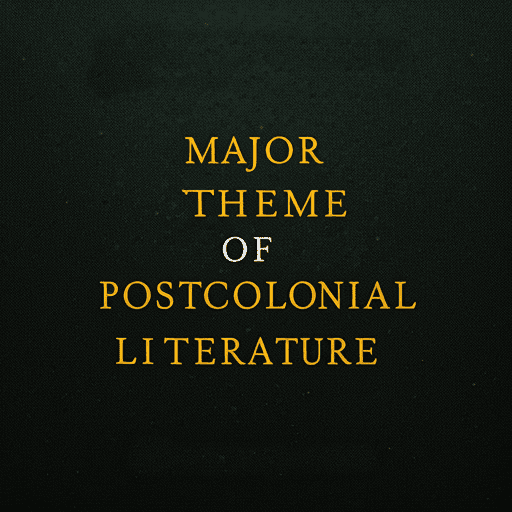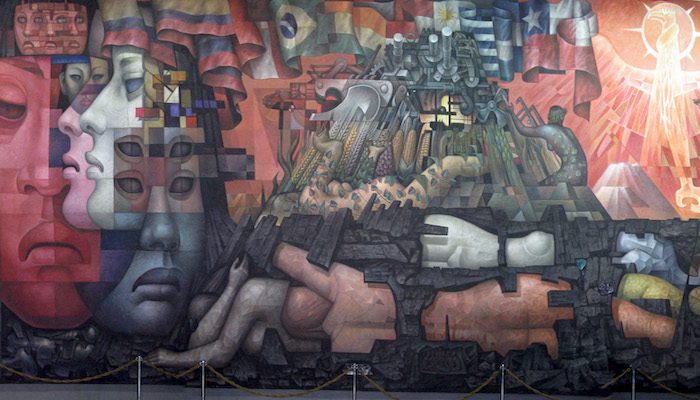The notion of an action invoking a reaction is not just limited to the sciences but also found in literature. For instance, postcolonial literature acts as a reaction to the colonial discourses that were labelled with the colonies. In this domain, the reaction is that of the representation. Implying, the representation, factual and unbiased, of the native lands is one of the major themes in Postcolonial writings. Since the advent of Western literature, the “Other” lands have been labelled as strange and under the darkness of ignorance. Western literature is considered as a guiding force which interpellated an ideology of an inferiority complex for the natives and superiority for the colonizers, making a roadmap for the physical colonization of certain lands. As a reaction and response, Postcolonial literature plays a pivotal role in defying, denying, and renouncing all the absurd labels levelled against the masses of colonies and deconstructing the rationale and objectives of the colonizers’ imperialistic endeavours.

Entailed by the “Representation”, the “Identity” is another major theme in Postcolonial Literature. Questioned by the Western representation globally, the Postcolonial writers feel the urge to probe into the true identity of the colonized. Is it the way the West represents them? Is it otherwise? Is everything being sound, and some sycophants are just messing with it? Is it the much-needed evolution or a hazardous endeavour? These inquiries are posed before the artists and probed on many avenues in postcolonial literature.
Moreover, the Postcolonial literature deals with the theme of “Independence” both physically and psychologically. It is the Postcolonial reaction that somehow cause an end to the Physical coercive attempts and the Imperial powers went back home. Was it the departure’s end, and has Independence flowered? The literature deals with such notions. It embarks on an awareness and realization of the fact that at some points, we are still caught in Imperial clutches. How could we be free, as per our aspiration? The answer is yet to be answered.
As per postcolonial literature, the literati unveil all the happenings of physical independence. For instance, was independence achieved due to the efforts of the natives, or was it the presence of the Imperial powers? The literature inspects the and questions the “Authority” of pre- and post-independence times. In various instances, the “Authority” remained the same; intellectuals, landlords, and political hierarchies guided the processes before and now. The common man was never free or got “Independence.” It leads to another critical Postcolonial Literature theme: the “Internal Colonization.” In comparison, an ordinary man is internally colonized by its system. The system comprised of the Colonial lineage, i.e., The same intellectuals, landlords, and politicians.
Since Postcolonial literature is considered a reaction against Western literature, we mostly see the longing for native values and how sound and peaceful lives had been before modernity in the shape of colonization hit them. The literature celebrates the native cultural and traditional values, comparing and contrasting the real and West’s picture and how they shall react to all the imposed dogmas.

Postcolonial literature underscores the fact that the once-colonized masses are baffled by their existence due to the untouched mastery and a “foreign” imposition. They have yet to find a way out of their pre-natal stage and face the world in real. But the paths posed before them, almost all of them uncertain. For instance, clinging to nativity celebrates them as a local hero, but that is the end. On the other hand, if a person from a former colony resorted to Imperials, he would be sufficed in worldly pleasures and pursuits at the cost of being alienated from nativity.
The notion of “Alienation” under discussion is a vital introspection in the study of Postcolonial literature. The once colonized are alienated from their land, their fellow colonized and their own “Self”. Living among alike while living as “Other.” The “Self” and “Other” doctrine is the embodiment of the West’s designs to make their control and self-assumed superiority feasible. The “Other” is something that lacks every good aspect of the West. It is a derogatory remark used against all the Asian, African, and Arab nations. Edward Said called such a mindset “Orientalism,” i.e., the lens the West uses to see others. The literature takes the very lens and studies the background, employment, and implications. The colonial literature herein is an excellent venue for Postcolonial introspection.
Conclusively, postcolonial literature covers many issues, which are its central concerns. Whether it is the explanation of being under the direct physical control of an Imperial power, the events leading to the “Independence,” or the aftermaths, it embodies everything with the primary aim to decipher and bring the unbiased reality to the front.
